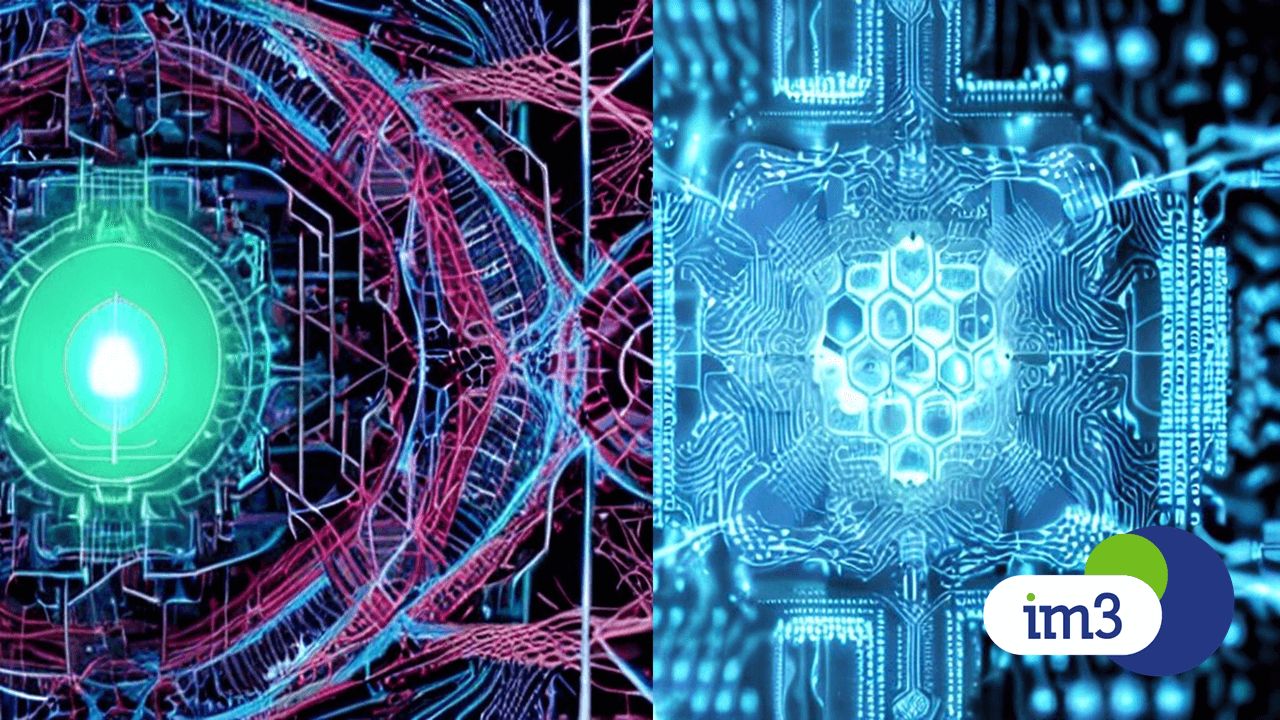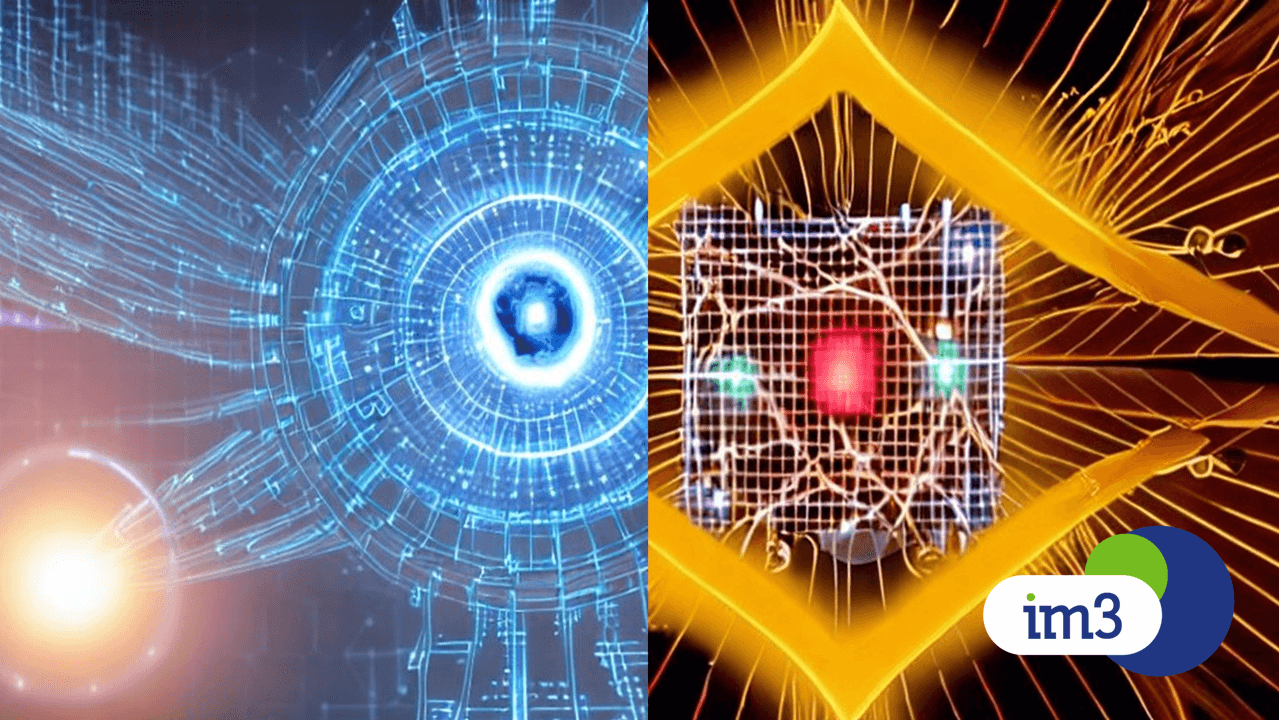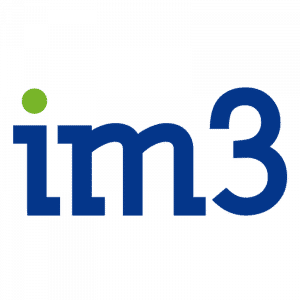11 Apr World Science and Technology Day
Artificial Intelligence and Quantum Computing
World Science and Technology Day is celebrated on April 10 of each year, and is an opportunity to highlight the importance of scientific research and technological innovation in the development of the Society.
At Im3, our Purpose is the design of projects with digital technologies for a future of energy sustainability inspired by the Values: Security, Professional Rigor and Digitization. This is the essence of living Im3! and we want to dedicate this day with so much sense for our corporate culture to Artificial Intelligence and Quantum Computing.
Artificial Intelligence (AI) is the key technology in the new third (3rd) era of computing, which will display its best benefits when the Super-Artificial Intelligence (AIS) category is fully deployed with computers that will be literally billions of times more intelligent than humans in every sense, scenario that we are not even able to visualize.
As for the future applications of the Standard Model of Particles, after a few decades of slow progress, we are on the brink of the new quantum revolution: the scientific-technological collective has gone from abhorring the strangeness of quantum reality (principles of complementarity and uncertainty, superposition, entanglement, and the effervescent void) to embrace them; Now the researchers are working on:
- Extension of the quantum limit by creating ever larger systems that retain their fascinating oddities.
- Ultra-cold strontium optical clocks that present an uncertainty of 3×10-19, which is equivalent to an error of less than a second in a time like the age of the Universe itself. Its precision is such that the variation of time with altitude predicted by General Relativity can be measured in the laboratory.
- Quantum Computing is an emerging technology that promises to solve, thanks to the combination of quantum phenomena of superposition, entanglement and interference, problems that are intractable for classical computer systems. Unlike classical computers that use bits to represent information, quantum computers use qubits, which can be in multiple states simultaneously. This allows much faster and more complex calculations than possible with classical computer systems.
- Technology of Light (photons in general) as a universal vehicle of information and instrument for control and manipulation of quantum matter.
To paraphrase Serge Haroche (2012 Nobel Laureate in Physics): the implications of fundamental science for tomorrow’s applications remain largely unpredictable, and therein lies the allure of research.



